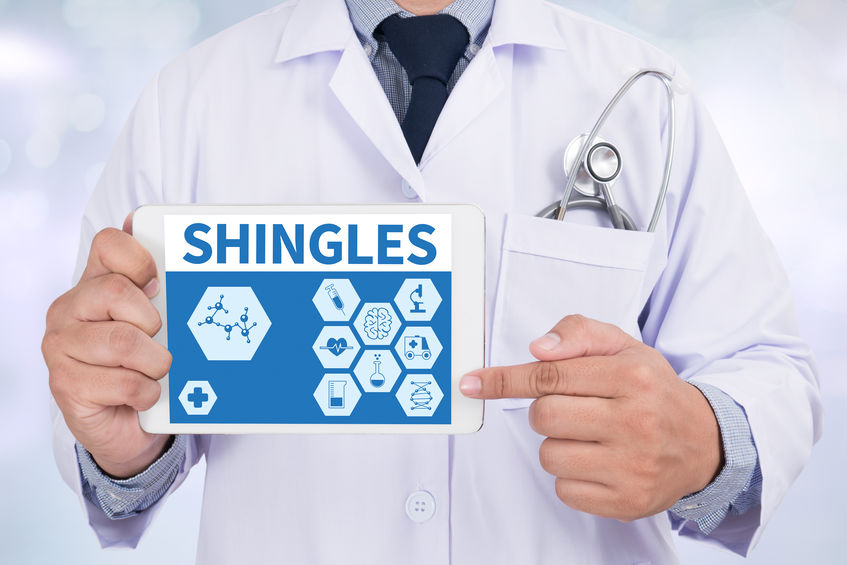Shingles Treatments
About Shingles
About 1 in 3 people living in the United States will develop shingles in their lifetime according to the CDC (Centers for Disease Control). Shingles is a painful, blistered rash that develops on one side of the body or the face. Typically, the rash occurs as a single stripe on one side of the body. If the rash occurs on the face, it can be more serious, affecting the eye and possibly causing vision loss. The blisters of the rash usually scab over in 7-10 days and fully clears within 2-4 weeks. Several days before the rash appears, people with shingles may experience pain, itching, or tingling in the area where the rash will develop. Other symptoms of shingles might include fever, headache, chills, or upset stomach.
The virus that causes shingles (and chicken pox) is called varicella zoster virus, or VZV. If you’ve had the chicken pox, you are at risk for getting shingles because the VZV can lay dormant (inactive) and resurface later in life. As someone gets older, they are more at risk for developing shingles. If you’ve never had chicken pox, or never received the chicken pox vaccine, you could get chicken pox from someone who has shingles. However, you cannot get shingles from someone who has shingles. The risk of spreading VZV to others is low if you cover the shingles rash. If you have shingles, avoid contact with pregnant women, premature babies, and people who are immunocompromised. People with shingles cannot spread the virus before the rash blisters or after it crusts. Someone with chicken pox is much more likely to spread VZV than those with shingles.
The most common complication of shingles is long-term nerve pain called postherpetic neuralgia (PHN), which occurs in the areas where the shingles rash was. It can last for months or years. The risk of PHN increases with age. Other complications include blindness, pneumonia, hearing problems, brain inflammation, or death.
Shingles Treatment and Prevention
There are antiviral medications available to treat shingles, such as acyclovir, valacyclovir, and famciclovir. These each are usually taken for 7 days and can help shorten the length of the disease, decrease the seriousness, and possibly reduce the likelihood of PHN. Usually, these medicines work best if they are started right away (within the first 3 days) after the shingles rash appears. Pain medications, like Tylenol® (acetaminophen) or ibuprofen (Advil®, Motrin®), can also help relieve the pain from the shingles rash. If there is pain that interferes with sleep or daily life, it is possible your doctor can prescribe a prescription pain medication to help. If pain lasts for longer than 4 months after the shingles, it is considered PNH, and different treatment options can be discussed with your doctor as well. Some suggestions for treating itching from shingles include wet compresses, calamine lotion, and colloidal oatmeal baths.
To prevent shingles, there is a vaccine available. It is recommended that healthy adults over 50 years get the Shingrix® vaccine. The vaccine is given as two doses separated by 2 to 6 months. Even if you’ve had shingles in the past, received the other shingles vaccine (Zostavax® – no longer available), or are not sure you’ve had the chicken pox, it is still recommended to get the vaccine. Shingrix® has been found to reduce the risk of shingles and PHN by more than 90% in people 50 and older. There are certain people who may not be recommended to get the vaccine. See resource 2 below or talk to your doctor about the vaccine.
Resources:
1) https://www.cdc.gov/shingles/about/index.html
2) https://www.cdc.gov/vaccines/vpd/shingles/public/shingrix/index.html












